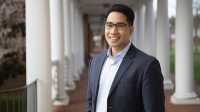
29 May Upper Class Individuals Can Exude Unwarranted Overconfidence
MedicalResearch.com Interview with:
Peter Belmi PhD
Assistant Professor of Leadership and Organizational Behavior
Darden School of Business
University of Virginia
MedicalResearch.com: What is the background for this study?
Response: We wanted to understand how socioeconomic inequalities perpetuate from one generation to the next. Some scholars have suggested that social inequalities persist because of systemic prejudice that make it difficult for those at the bottom to improve their standing. Other scholars have suggested that structural inequalities may be hard to dismantle because those who wield the most influence are motivated to preserve their advantages. And other scholars have suggested that inequality may perpetuate when mainstream institutions do not acknowledge the values and norms of individuals from underrepresented groups.
MedicalResearch.com: What are the main findings?
Response: In four methodologically diverse studies consisting of 152,661 individuals, we found that compared with individuals with relatively low social class, individuals with relatively high social class were more overconfident: They had an exaggerated belief that they were better than others, when reality indicated otherwise. This overconfidence, however, was misinterpreted by outside observers as competence, providing individuals with higher social class a path to social advantage.
MedicalResearch.com: What should readers take away from your report?
Response: To mitigate inequality, institutions need to establish mechanisms that allow the accurate assessment of competence. Without such mechanisms, decision-makers and gatekeepers may disproportionately reward individuals who already have an advantage because of their apparent competence, even though those individuals may not necessarily be the ones who would best serve a group’s interests.
Our findings also suggest that finding solutions to mitigate inequality may also require a focus on subtle and seemingly harmless human tendencies. Although people may be well-meaning, status inequalities may inadvertently continue to perpetuate if individuals do not correct for their natural human tendency to conflate impressions of confidence with evidence of ability.
MedicalResearch.com: What recommendations do you have for future research as a result of this work?
Response: It would be important to understand the cultural and developmental origins of overconfidence—when does it begin? What parental or cultural practices might exacerbate this tendency? How does it develop among kids?
Citation:
Belmi, Peter,Neale, Margaret A.,Reiff, David,Ulfe, Rosemary
Journal of Personality and Social Psychology, May 20 , 2019
[wysija_form id=”3″]
[last-modified]
The information on MedicalResearch.com is provided for educational purposes only, and is in no way intended to diagnose, cure, or treat any medical or other condition. Always seek the advice of your physician or other qualified health and ask your doctor any questions you may have regarding a medical condition. In addition to all other limitations and disclaimers in this agreement, service provider and its third party providers disclaim any liability or loss in connection with the content provided on this website.
Last Updated on May 29, 2019 by Marie Benz MD FAAD

